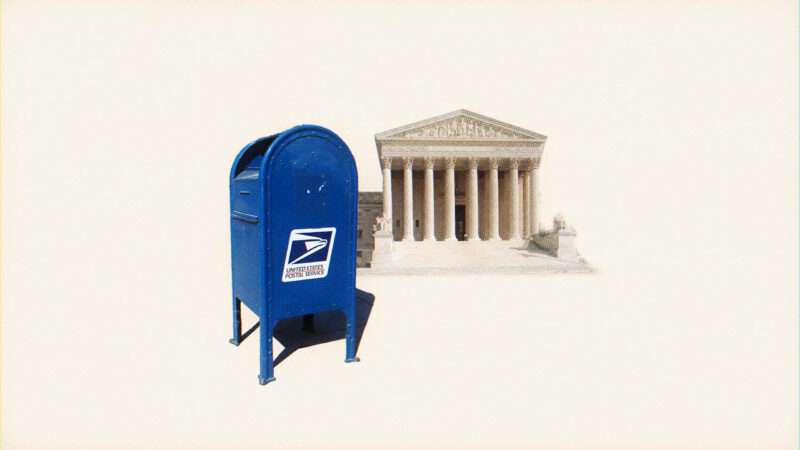
Title VII of the Civil Rights Act of 1964 prohibits employment discrimination "because of…religion." The U.S. Supreme Court recently agreed to hear a case that asks whether that law requires the U.S. Postal Service (USPS) to accommodate a religious postal employee who refuses to work on Sundays.
The case is Groff v. DeJoy. Gerald Groff is a former mail carrier who quit the USPS after being disciplined for refusing to work on Sundays. He argues that he was entitled to a religious accommodation under both Title VII and the Equal Employment Opportunity Act of 1972, which amended the 1964 Civil Rights Act by defining "religion" as including "all aspects of religious observance and practice, as well as belief, unless an employer demonstrates that he is unable to reasonably accommodate to an employee's or prospective employee's religious observance or practice without undue hardship on the conduct of the employer's business."
It was no "undue hardship," Groff and his lawyers maintain, for the USPS to have accommodated Groff's Sunday Sabbath observances. "The 1972 amendment to Title VII aimed to ensure that no worker must make the cruel choice of surrendering their faith or their job," they told the Court. "On its face, the statute provides robust protections for religious employees—after all, 'undue hardship' suggests that an employer must incur significant costs or difficulty before it is excused from offering an accommodation."
Groff lost last year before the U.S. Court of Appeals for the 3rd Circuit, which held that granting him a workplace religious accommodation would have imposed an undue hardship on the USPS. Groff's refusal to work on Sundays, the appellate court said, "created a 'tense atmosphere'" as other workers "had to work more Sundays to cover Groff's absences," which itself created "resentment towards management." The court further stated: "Groff's absence also required the other carriers to deliver more mail than they otherwise would have on Sundays."
The 3rd Circuit based its decision in significant part on Trans World Airlines v. Hardison (1977), in which the Supreme Court said that requiring an employer "to bear more than a de minimis cost" to make a religious accommodation "is an undue hardship." Religious activists, including social conservatives, maintain that Hardison unduly favors employers over workers. Groff and his lawyers argue that the Court "should revisit and disapprove Hardison's definition of undue hardship."
At least three members of the current Supreme Court seem ready to side with Groff and toss Hardison by the wayside. In 2020, the Court declined to hear a similar case about religious accommodations at work. Writing in concurrence, Justice Samuel Alito, joined by Justices Clarence Thomas and Neil Gorsuch, agreed that the Court was right to ignore that one but, "in an appropriate case," the Court should "consider whether Hardison's interpretation should be overruled." According to Alito, Thomas, and Gorsuch, "Hardison's reading does not represent the most likely interpretation of the statutory term 'undue hardship.'"
Assuming those three justices can attract at least two more votes, which I suspect they probably can, Hardison looks like it could be scrapped in favor of a statutory interpretation that expands the scope of federally required religious accommodations at work.
The post SCOTUS Will Decide Whether Federal Law Shields a Religious Postal Employee Who Refuses To Work on Sundays appeared first on Reason.com.







